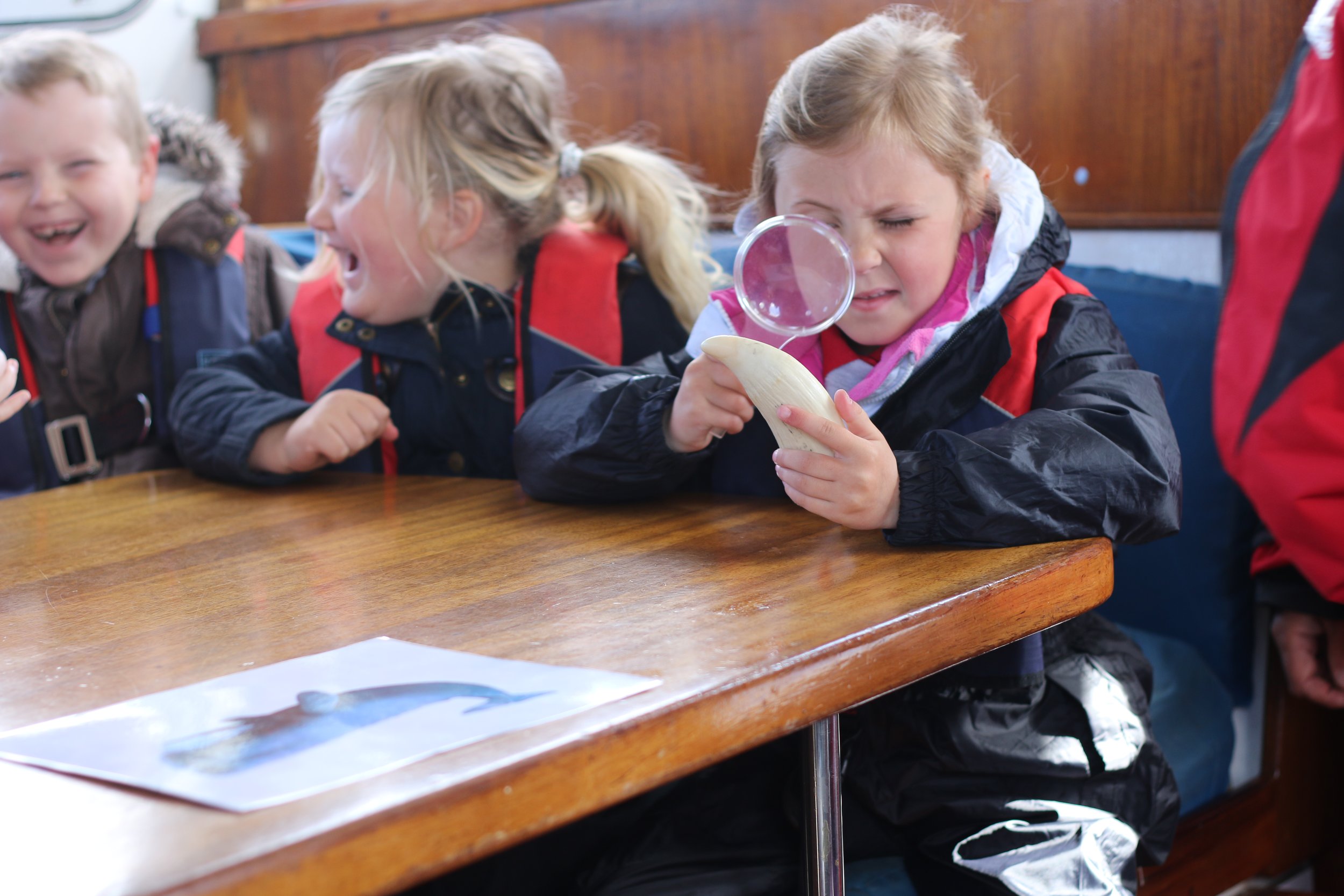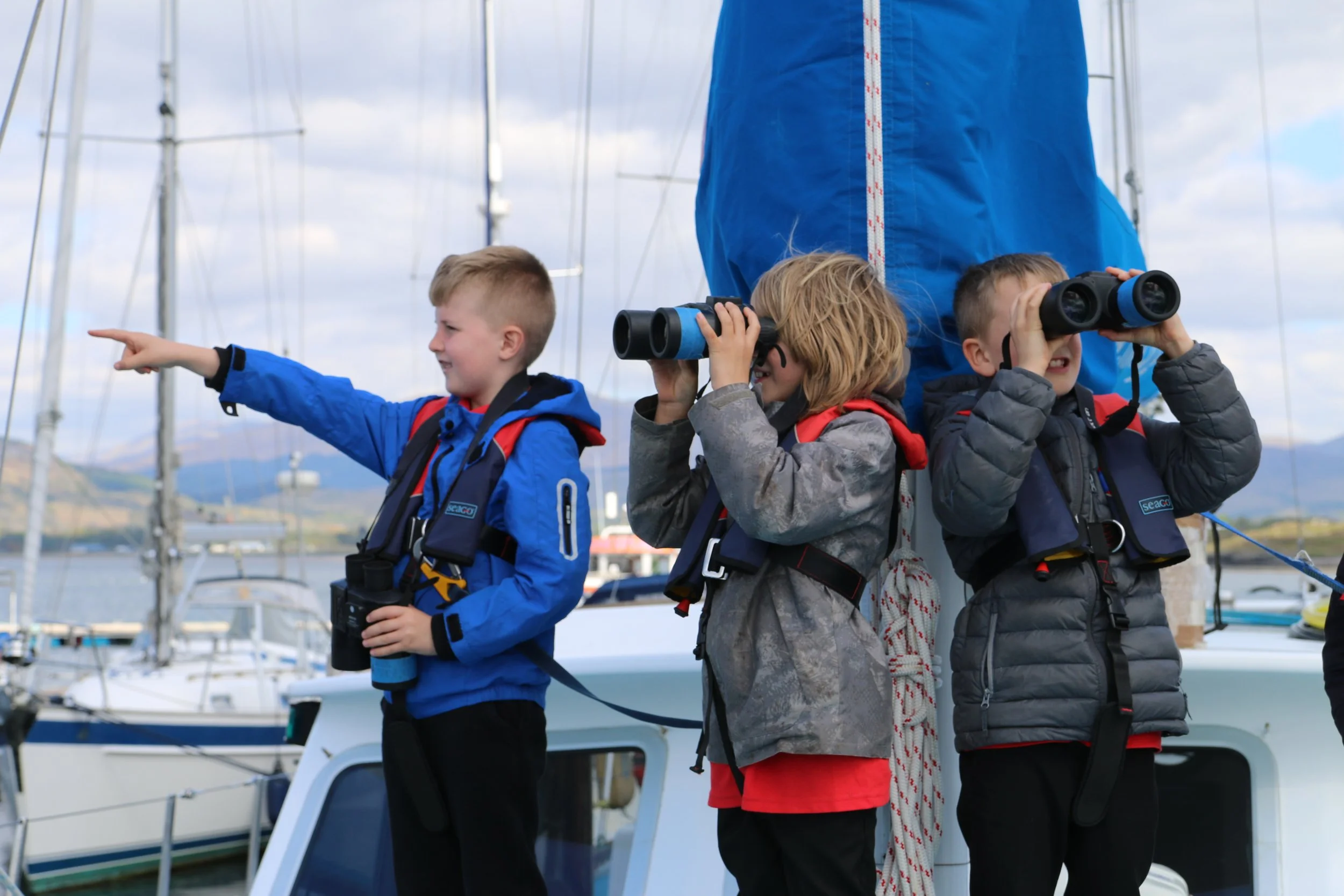All aboard! Why hands on experiences are important
Pupils taking part in a Floating Classroom visit ©HWDT
What do you remember most about school? The lessons sat behind a desk, spending lunch times playing with your friends, or the excitement and anticipation of that one off school trip, getting out of the confines of the classroom, visiting somewhere new and experiencing something for the first time.
Outdoor learning and first-hand experiences have been widely researched in recent years, with substantial evidence showing the benefits these experiences have on children’s development. Many have reported how learning outside the classroom can promote engagement and enjoyment with learning, while positively impacting on children’s personal and social development and wellbeing (Estyn, 2011b).
Offering more freedom to explore, outdoor learning enhances creativity and problem-solving skills, teaching children to apply their thinking to real life situations, while giving them the opportunity to investigate and explore. Research from the Childcare Resources and Research Unit in 2008 found that “Outdoor play space provides chances for the highest level of development and learning. When used best, it can be a place for investigation, exploration and social interaction.”
Spotting a seal during a Floating Classroom visit ©HWDT
Connecting with the natural world and engaging in experiences unique to the outdoors can also impact positively on their self-image and confidence, and embed a stronger sense of place, giving them the opportunity to develop a lifelong appreciation of nature. The Council for Learning Outside the Classroom explain how these first-hand experiences in the outdoors can help children understand and respect the natural world and their connection to it.
“Anyone who takes children outside regularly sees the enjoyment, and sense of wonder and excitement that is generated when children actively engage with their environment.”
(Council for Learning Outside the Classroom)
However, over the past couple of years, as a result of COVID-19, children have missed out on the opportunity of gaining new experiences through taking part in educational school field trips.
At the Hebridean Whale and Dolphin Trust, we have been offering practical, hands-on experiences aboard our research vessel Silurian to schools on the West Coast of Scotland for 20 years. Our Floating Classroom provides schools with the rare opportunity to climb aboard a real research yacht and see first hand what life is like living and working as a marine mammal scientist.
This experience immerses the children in all aspects of our research, from exploring the living quarters of our live aboard scientists, taking a turn at the helm, diving deep into the underwater sounds at the science station and learning how to be marine mammal observers, shouting ‘sighting’ at the mast.
Shouting “SIGHTING!” during a Floating Classroom visit ©HWDT
“I am writing to thank you for giving us an amazing experience onboard your research vessel, Silurian. My favourite part was looking for the seals and shouting SIGHTING!”
P7 PUPIL, 2018
Unfortunately, we have been unable to offer these unique learning experiences for the past couple years, due to the pandemic. This year, with your help, we hope to raise the anchor on our floating classroom and sail to schools on the west coast of Scotland to once again inspire the next generation to protect our wonderfully diverse Hebridean seas.
Pupils taking part in a Floating Classroom visit ©HWDT
“My daughter (age 10) loved visiting your boat. Since her trip, she has been researching marine biology and has decided she wants to go to University in Glasgow to study this.”
PARENT OF PUPIL, MALLAIG PRIMARY FLOATING CLASSROOM 2019
Starting Friday, for one week only, your donation will make twice the impact. Any donation you make, will be doubled by the Green Match Fund. So, if you can, please donate. Even the smallest donation will be matched and help us reach our goal, allowing us to visit some of the most remote locations on the west coast and welcome school children onboard Silurian once again.
Pupils taking part in a Floating Classroom visit ©HWDT
“Children’s knowledge of biodiversity is in decline at a time when we need future generations to be more engaged and aware in order to halt its loss. There is a very real need to educate our children as the future guardians of our planet, to provide them with the knowledge they need today to preserve the natural world for tomorrow.”
Dr Ahmed Djoghlaf, Executive Secretary of the United Nations Convention on Biological Diversity





